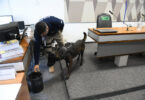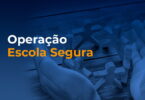The week of June 21, 2015 was not a good week on the world stage. The week saw the tragic murder of 9 people gunned down in a South Carolina church, then the ISIS attacks in Tunisia, the beheading in France, the murders in Syria and the attack against the Mosque in Kuwait. The last three of these deeds occurred during the Muslim month of Ramadan, when some terrorists believe that there is a higher calling to martyrdom. For example, Yahoo News reported on June 27, 2015 that Abu Mohammad al-Adnani, Islamic State spokesman, stated: “The best acts that bring you closer to God are jihad, so hurry to it and make sure to carry out the invasion this holy month and be exposed to martyrdom in it… These are your weapons and this is Ramadan.”i Death seemed to be everywhere. Reading and listening to the media, it would not be difficult to draw a connection between religion and violence. The assumption that religion leads to violence is one that has been around for many years. In the 1950s when I was a young boy people often told me that religion was responsible for most wars and killings. The claim was based on the assumption that religion motivated people to take the lives of their fellow men and women based on religious fanaticism. I heard lectures on the role of the Crusades, Jihadists, and the Inquisition. We read about the Salem witch trials and our teachers showed us pictures of the Ku Klux Klan burning crosses. Even as a young boy I wondered about these statements. Was it possible that the lessons that I was taught about being kind and good to my human beings also drove people to a form of psychotic madness? To add to my confusion I wondered if Stalin religious? How about the communist Chinese? Hitler murdered people because of their religious faith, but was he religious or the antithesis or religion? Although there are clearly religious fanatics who murder, what about religious people who are martyred, or innocent victims, or sacrifice their lives for others in what Durkheim called “altruistic suicide”?ii These were innocent people, who were faith observant but not only not motivated by religion to take the life of a fellow human being, but also were at times willing to give their lives for others. For a long time these questions plagued me. Ironically, the English language forces us to think about violence and religion even in its vocabulary usage. Thus, the word “plagued” becomes problematic as we connect the word with the Biblical Ten Plagues that resulted in the death of all of Egypt’s first born. This paper is an attempt to address if, and/or to what extent, the question: does religion lead to additional violence and to acts of terrorism? That is to say, does religion lead to a greater propensity to commit acts of terrorism than does secularism? Certainly, religion and terrorism are in the news. Scholars and politicians may argue as to the extent that the Islamic State represents Islam, but there can be no doubt that the followers of the Islamic State (ISIS) see themselves as representing the true face of Islam. The same is true for Al Qaeda. We cannot separate these people anymore from Islam than we can separate the Inquisitors from medieval Christianity. In fact, just as the Spanish and Portuguese inquisitors vented much of their anger against so-called Catholic “heretics” in the same way, much of the violence that ISIS creates is aimed at other Muslims who do not meet its “Islamic” standards. Certainly, we cannot blame the average person for being shocked when s/he reads headlines such as: “New low: ISIS reportedly gives away sex slaves as ‘prizes’ in Koran contest”. iii We cannot be surprised when those who are anti-religious charge that religion leads to fanaticism and fanaticism evolves into violence. No one can deny that these charges exist. The question is: are these charges true and if so, to what extent are they true?
Methodology:
These are not easy questions to answer. The use of statistical data or some form of quantitative analysis although tempting may easily lead to false conclusions. The reasons behind this statement are as follows: 1) Without a clear cut definition of terrorism, it is impossible to count acts of terrorism 2) There is no clear cut dividing line between acts of violence and acts of terrorism 3) As will be seen below, there are no clear definitions of religion This confusion of terms means that it is impossible to be sure of the data’s validity. It is for this reason, that a qualitative analysis of the question at hand may lead us to a greater understanding of the problem. To begin to answer them I have based this paper on two basic premises: (1) human beings are moved to act or motivated by ideologies and (2) all religions are a manifestation of an ideology. That is to say that religion is a subset of the concept ideology. Ideologies act as the justifications for arguments over economic resources and power, although we can argue that power is the means by which resources are gained and ideologies work as the justifications for the use or power. We can argue that although all religions are ideologies not all ideologies are religions. As such, religion, along with secular ideologies, act as motivators for both positive and negative human actions.
Leia o texto na íntegra acessando o link: http://www.palermo.edu/Archivos_content/2015/economicas/journal-tourism/edicion12/04_Religion_Violence_and_Terrorism.pdf







